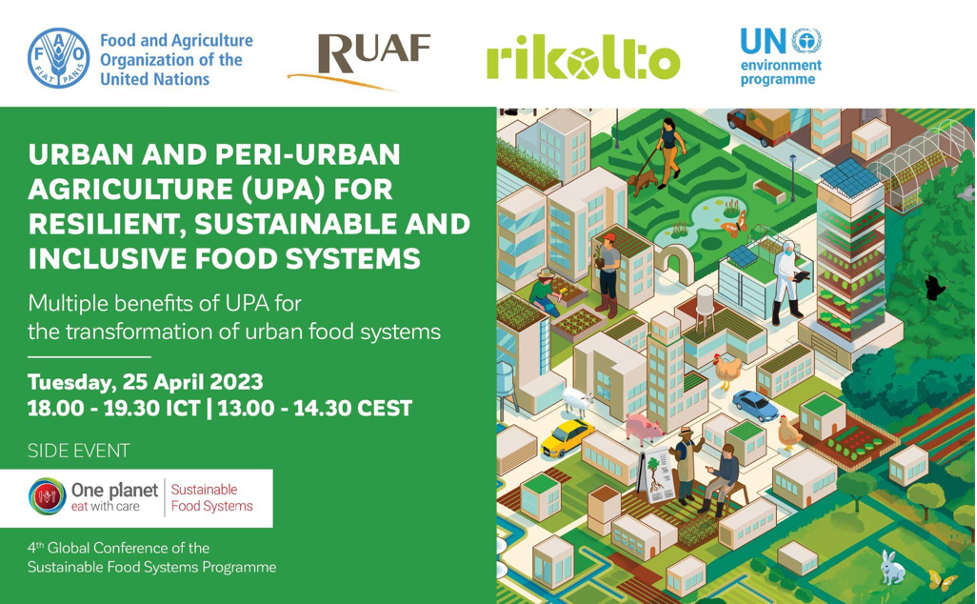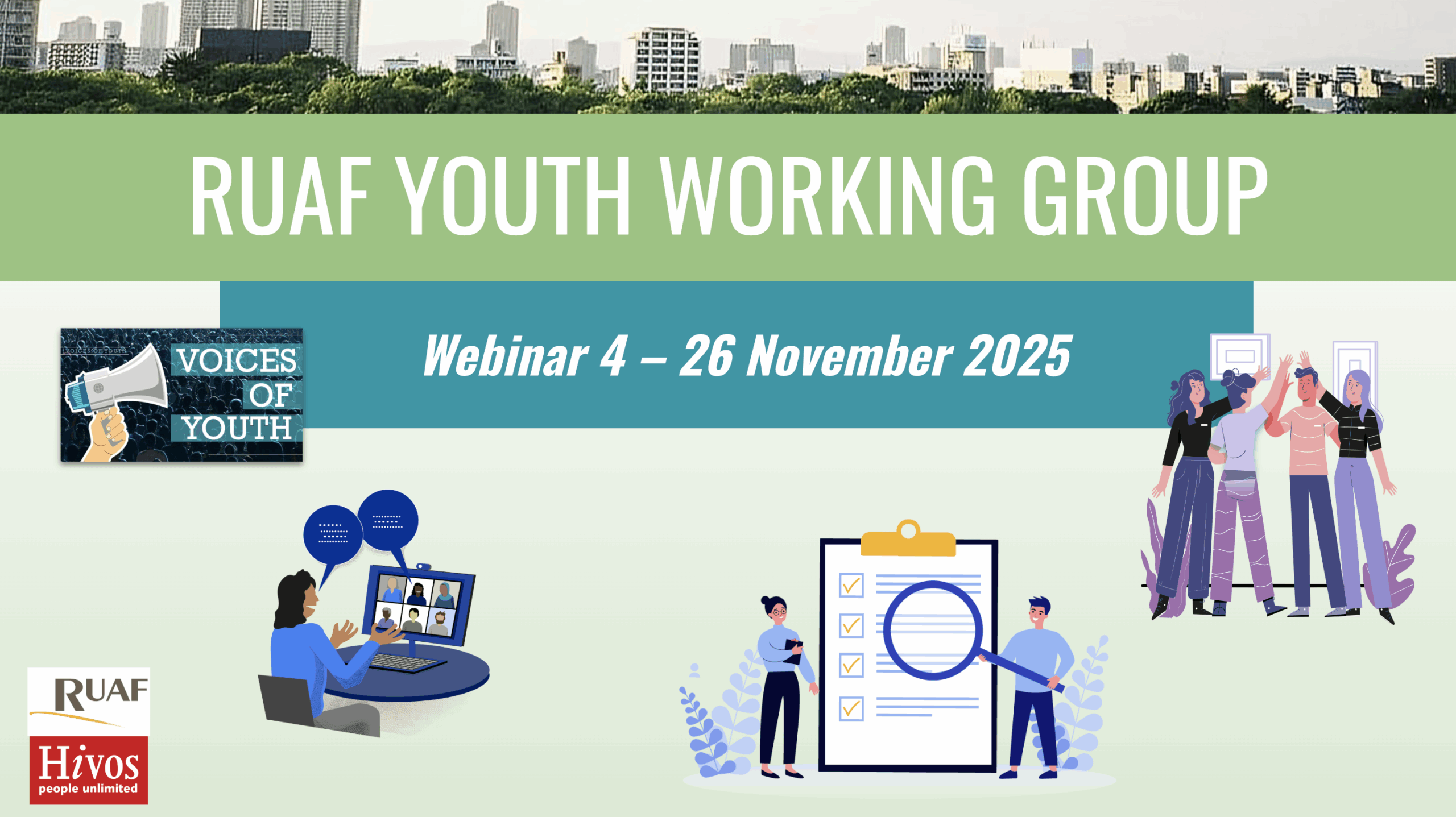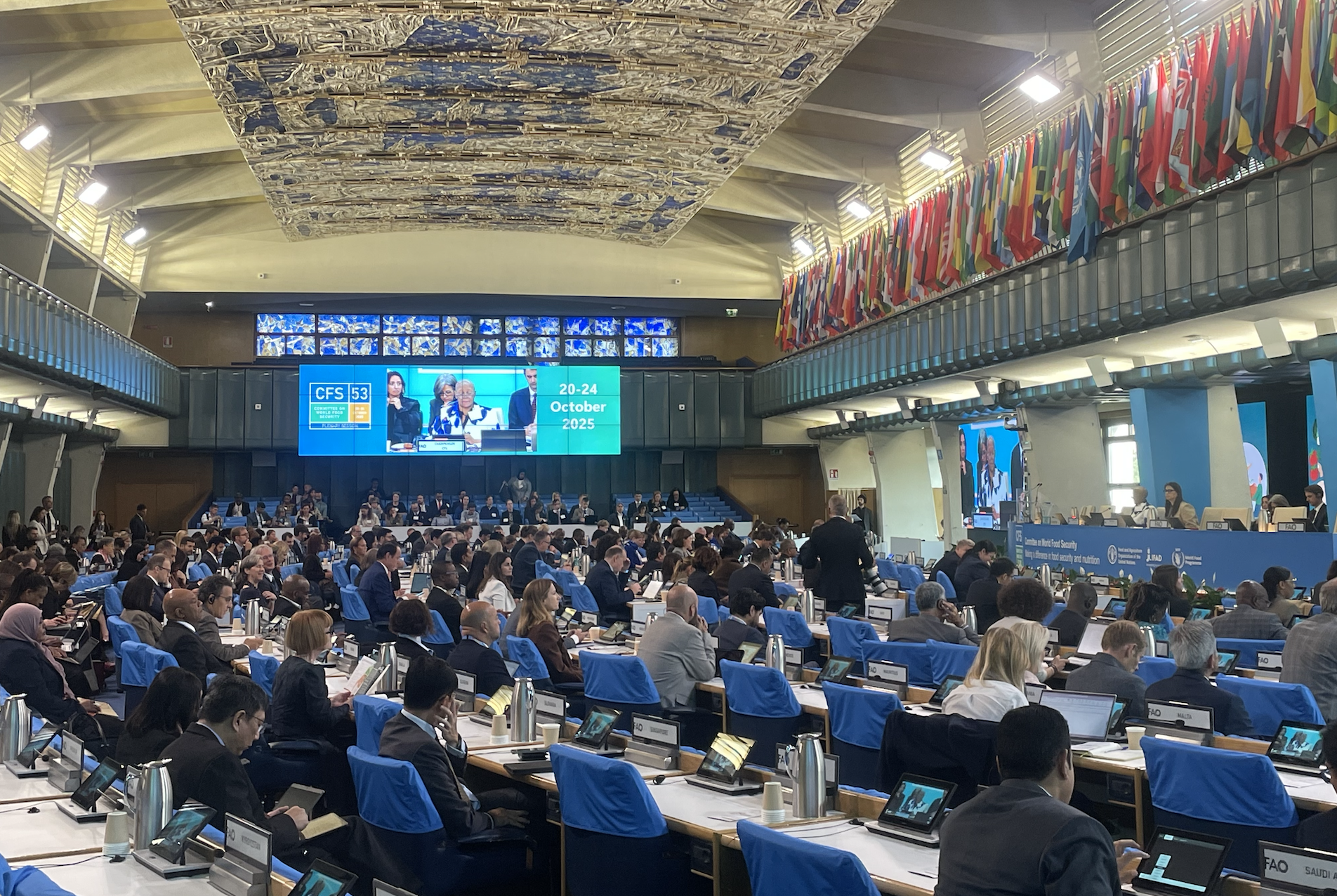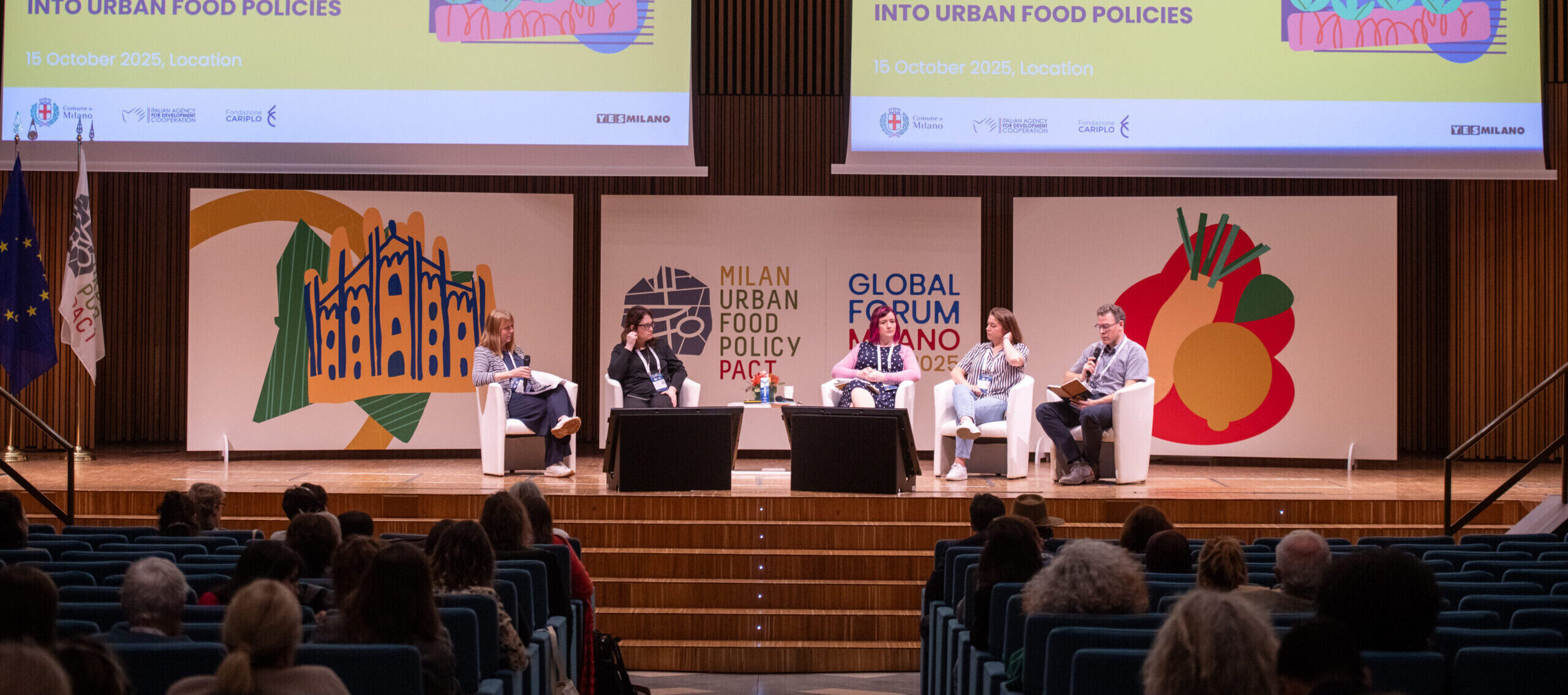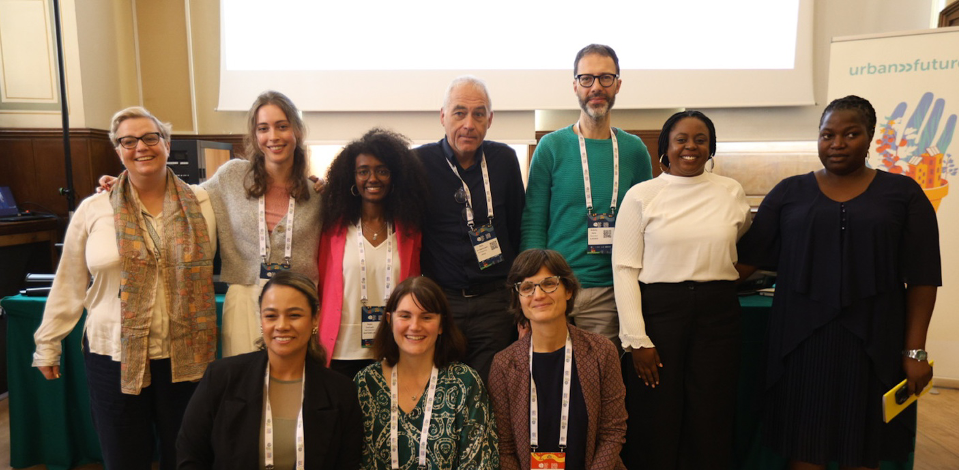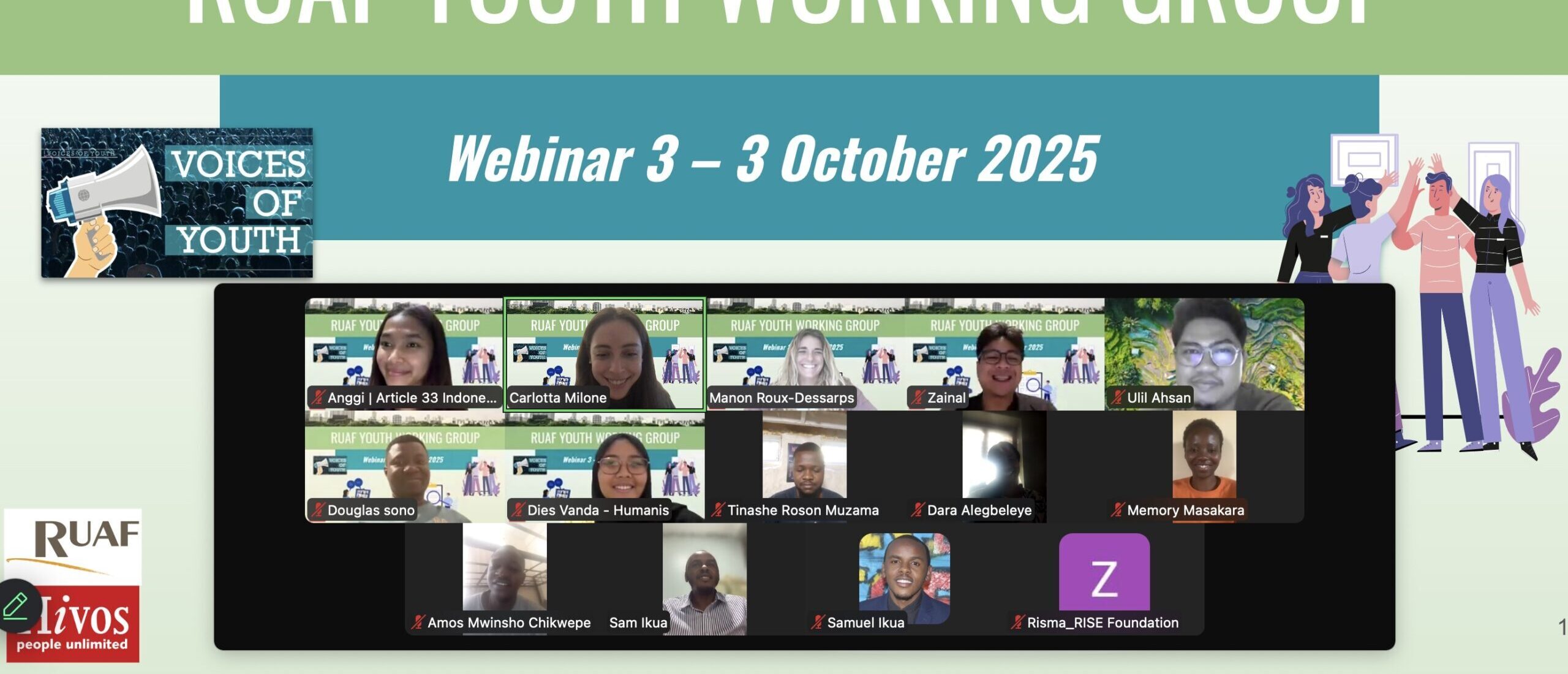Side event during the 4th Global Conference of the Sustainable Food Systems Programme
On 25 April 2023, the Food and Agriculture Organization (FAO), RUAF Global Partnership on Sustainable Urban Agriculture and Food Systems, Rikolto, and United Nations Environment Programme (UNEP) co-organized a side event during the 4th Global Conference of the Sustainable Food Systems Programme. The event aimed to shed light on the role of urban and peri-urban agriculture (UPA) in fostering resilient, sustainable, and inclusive food systems. It brought together experts, practitioners, and city representatives to share experiences, best practices, and insights on integrating UPA into urban planning for transformative change.
The event was opened and moderated by Guido Santini, FAO Programme Coordinator, stressing the urgency of addressing the compounding impacts of climate change, public health crises, and geopolitical challenges on food systems. He introduced the Urban and Peri-urban Agriculture Sourcebook by FAO, Rikolto, RUAF as a comprehensive guidance for local decision-makers, policy advisors, urban planners, specialists, practitioners and others involved in the design and implementation of production schemes, planning of urban food strategies, and policies concerning agriculture in urban and peri-urban areas.
René van Veenhuizen, Senior Programme Manager at RUAF, highlighted the manifold social, economic and environmental benefits of UPA such as diversifying food sources, shortening supply chains, and connecting producers directly with consumers. Marina Bortoletti, Associate Programme Officer at UNEP, emphasized UPA’s role in achieving sustainability goals, including climate change mitigation, economic development, and biodiversity conservation, drawing on a recent report by the International Research Panel and UNEP.
The centerpiece of the event was a roundtable discussion moderated by Guido Santini, featuring representatives from cities around the globe who shared success stories, best practices and challenges in UPA integration. Pius Sugeng Prasetyo from the University of Parahyangan in Bandung, Indonesia, highlighted the importance of national support to scale up UPA initiatives. Margret Semwanga and Manon Obarowski, representing Kampala Capital City Authority, Uganda, emphasised the need for a framework to integrate UPA into national agricultural policies. Mandresy Rakotoarison from the Municipality of Antananarivo, Madagascar, demonstrated the significance of multistakeholder partnerships in linking urban farmers with school canteens. Shulang Fei from the Chinese Academy of Agricultural Sciences in Chengdu, China, showcased how technology and innovation attract young people to UPA. Samuel Ikua, representing the Mazingira Institute and RUAF in Nairobi, Kenya, showed how the city’s institutional framework for coordination enables UPA integration into urban planning.
In her closing remarks, Charlotte Flechet, Global Programme Director – Food Smart Cities at Rikolto, summarized the transformative potential of UPA in building urban resilience, regenerative agriculture, and biodiversity conservation. She underscored the importance of inclusive decision-making processes, urging the involvement of vulnerable groups. Documenting the benefits of UPA and consolidating data is deemed crucial to quantify its contributions and promote its recognition as a viable solution. Furthermore, UPA’s integration into urban planning and policy frameworks was emphasized as a crucial step in ensuring long-term land allocation for urban agriculture. Flechet called upon public and private funders to support capacity building and the implementation of city-specific urban agendas. Finally, she concluded by highlighting the key role of national governments in creating conducive conditions through budget allocation, capacity building, and policy frameworks.
The side event provided a platform for showcasing the potential of UPA as a tool for integrated planning and transformation of urban food systems. It highlighted the importance of incorporating UPA into urban planning and policy-making to build resilience against the impacts of climate change and other challenges. By fostering inclusivity, generating evidence and synergizing support from various stakeholders, UPA can contribute to resilient, sustainable, and inclusive food systems, ensuring a brighter future for urban communities.
The recording of the event will be available here.
This article was originally published on fao.org.

